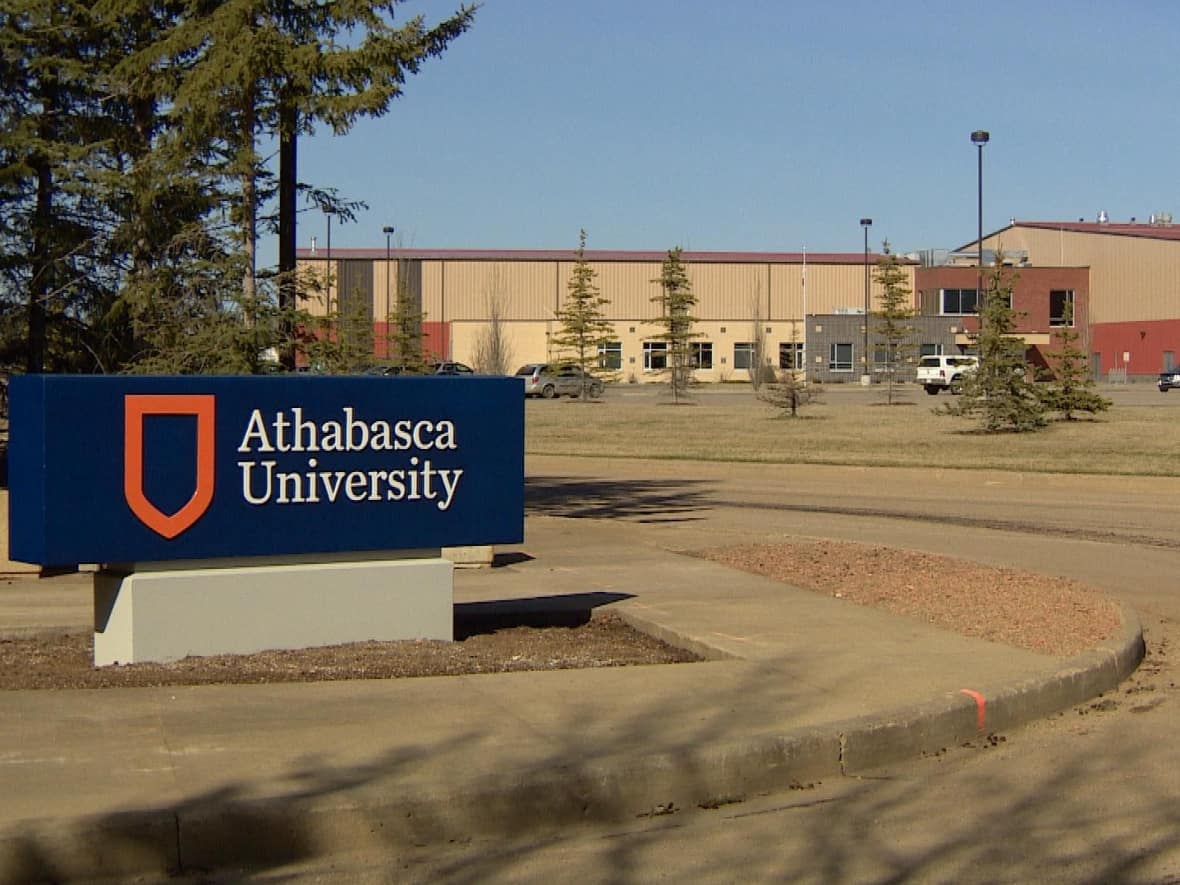Draft shows Athabasca University funding agreement will be tied to local staffing

Athabasca University's board of governors met Friday to consider a draft investment management agreement that requires the institution to consolidate employment in Athabasca and drop a transition to near-virtual operations.
The board must sign the IMA by Aug. 31 or the province will start withholding $3.4 million in operations funding each month.
The draft also requires the university's president and executive work full-time in Athabasca by 2025. Current AU president Peter Scott lives in Edmonton.
The board held part of its meeting in public which allowed members to ask questions of Alberta's advanced education minister Demetrios Nicolaides. The board moved into a closed-door session at the conclusion of the Q and A session.
Nicolaides said he heard the board might request more time to consider the IMA.
While he was willing to be flexible, Nicolaides said he was reluctant to extend the Wednesday deadline. He pointed to the five months that have passed since he ordered AU to submit plans to base the executive and administration in Athabasca.
"If we're 80 per cent of the way there and it's August 30, then, OK. No big deal. We'll make that happen," Nicolaides said.
"But if there's a request to say that, 'We need two more months to explore this,' I would be much more reticent."
The university isn't planning to provide additional information on Friday about what came out of the board's discussions.
Friday's meeting is the latest step in a battle that has intensified over the past year.
Athabasca residents have fought the university's move to near-virtual operations over concerns it would hasten the departure of jobs from the community and hurt the local economy.
Months of lobbying and advocacy resulted in a visit from Premier Jason Kenney in March.
At that time, Kenney told a public town hall in Athabasca that his government was committed to keeping AU's operations in Athabasca.
AU was told to get Athabasca-based employees back to working on-campus. It was ordered to submit plans to increase local employment and get the executive working full-time in Athabasca by 2024-25.
The university's administration resisted. Scott said abandoning the near-virtual plan would threaten the institution's long-term viability.
The stakes became higher in early August when Scott revealed the government was tying 9 per cent of the university's funding to getting 65 per cent of university employees working in Athabasca by 2025. Currently, 25 per cent of the institution's 1,200 employees live in the town.
The quota alarmed university staff. The Athabasca University Faculty Association said it supports encouraging new hires to live in Athabasca but opposes forced relocations.
Nicolaides has since softened that ask, indicating he is open to seeing alternatives from administration if a goal is impossible to achieve within a prescribed timeline.
Because the decision lies with the board of governors, Nicolaides said he doesn't want staff forced to move to Athabasca.
"Would I put the institution in a position where they would have to do that? Certainly not," he said.
The Athabasca board of governors is now chaired by Byron Nelson, a Calgary lawyer with ties to conservative politics in Alberta. Nelson ran for the leadership of the former Progressive Conservative party in Alberta.
Nicolaides removed Nancy Laird as board chair last spring.


